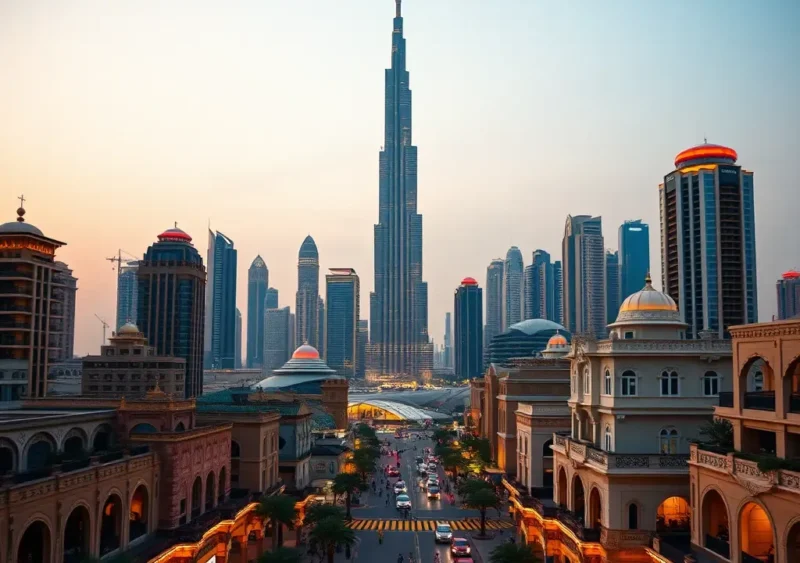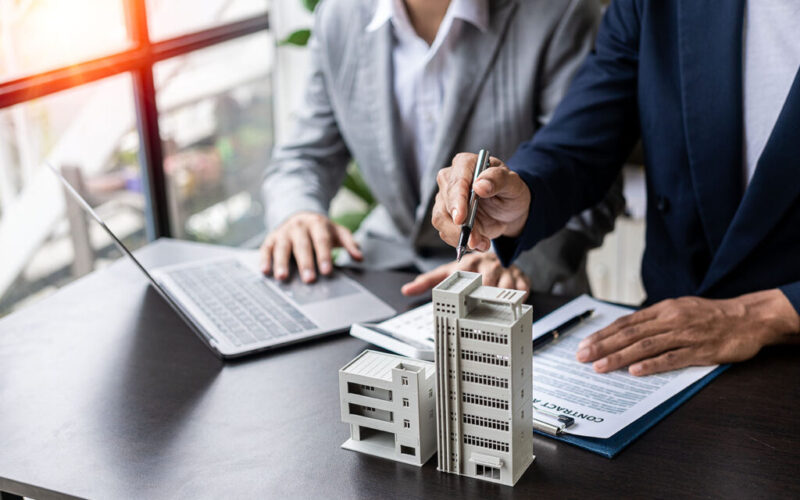So, you’re thinking about snapping up a piece of Dubai? Good news — you absolutely can. Foreign nationals can buy property in Dubai legally, as long as they stick to some clear guidelines and work with the right people. The UAE has opened its doors wide for international investors for decades now, and Dubai’s real estate scene is one of the most vibrant playgrounds out there.
There’s no legal loophole you need to squeeze through. The emirate has specific zones where foreigners can fully own freehold properties, and the laws are pretty straightforward — if you take your time, stay alert, and don’t sign things you don’t fully get. So, let’s break down how it works and what you need to watch out for if you want your name on a deed without any future headaches.
Why Dubai Still Attracts Foreign Buyers

It’s no secret Dubai is flashy — the skyline alone sells dreams. But there’s more under the glitter.
- Zero property tax: There’s no annual property tax or capital gains tax.
- Strategic location: You get easy access to Europe, Asia, and Africa.
- Strong returns: Rental yields hover around 5–9%, depending on location.
- Stable legal system: The UAE’s real estate law is clear-cut compared to some emerging markets.
For people looking to live part-time, invest, or even flip property later, Dubai’s legal structure is refreshingly straightforward — if you know where to look.
Freehold vs. Leasehold: What You’re Buying
First big thing to nail down — Dubai’s property laws separate freehold and leasehold zones.
- Freehold: You own the property and the land it sits on outright. You can sell, lease, or pass it to heirs.
- Leasehold: You lease the property for up to 99 years, but don’t own the land. When the lease’s up, the ownership reverts to the freeholder.
Foreign buyers are allowed to own freehold property in designated areas. Think Palm Jumeirah, Downtown Dubai, Dubai Marina, Arabian Ranches — the big names you see in glossy brochures. It’s no accident — the government wants overseas buyers investing in premium spots.
Can You Buy As An Individual, Or Do You Need a Company?

You don’t have to set up a company to buy property in Dubai. A lot of individual foreign buyers simply purchase in their name. But high-net-worth investors sometimes buy through offshore structures for inheritance planning or privacy.
Key thing — don’t mess around with shell companies just to dodge fees. Dubai’s regulators have tightened rules on money flows and ultimate beneficial owners (UBO) disclosures. If you’re legit and transparent, there’s no issue. Just be prepared for ID checks and source-of-funds verifications.
How To Pick The Right Property
A quick reality check — there’s no shortage of off-plan projects promising the world. Some deliver, some don’t.
If you’re not living in Dubai full-time, focus on a property that:
- It is in a prime freehold zone.
- Has good rental demand — Marina, Downtown, and Business Bay are safe bets.
- Comes from a reputable developer with a solid track record (Emaar, Damac, Nakheel).
- It isn’t priced suspiciously low. In Dubai, a deal that looks too good probably is.
Always request the title deed. For off-plan, verify that the developer is registered with the Dubai Land Department (DLD).
Paperwork: What You Need

Here’s where folks sometimes trip up — paperwork is king.
As a buyer, you’ll need:
- Passport copy (and residence visa if you have one, but not mandatory).
- Proof of address.
- Signed Sale and Purchase Agreement (SPA).
- Payment method proof — local bank transfer is standard.
- No Objection Certificate (NOC) from the developer if buying a resale.
Every property transfer must be registered with the Dubai Land Department. Skipping this means the sale isn’t official, and you’ve just thrown cash into the desert wind.
What About Mortgages?
Yup, foreigners can get mortgages in Dubai — with conditions.
- Non-residents typically get up to 50% Loan-To-Value (LTV). Residents can reach 80%.
- You’ll need a steady income and a healthy credit history.
- Most UAE banks require a minimum property value of around AED 1 million for a non-resident mortgage.
- Interest rates float between 3% and 5% — not terrible by global standards.
One heads-up: banks like to see salary income rather than just business income, but it depends on your bank.
Fees and Costs — The Real Breakdown
Buying property here isn’t just paying the seller’s price. A few extras sneak in:
| Expense | Typical Cost |
| DLD Transfer Fee | 4% of the purchase price |
| Registration Fee | ~AED 2,000–4,000 |
| Real Estate Agent Fee | Usually 2% |
| NOC Fee (resale only) | AED 500–5,000 |
| Mortgage Registration Fee | 0.25% of the loan amount |
| Trustee Office Fee | ~AED 4,000 |
So, a quick tip — budget an extra 7%–8% on top of your purchase price.
Work With Registered Experts, Not Random Brokers
Dubai’s real estate sector is regulated, but like any hot market, you’ll find your share of chancers. Don’t deal with anyone who can’t show you an RERA (Real Estate Regulatory Agency) license.
Always verify your agent and developer through the Dubai Land Department’s website. And get everything in writing. WhatsApp promises mean nothing when money’s involved.
If you’re new to the city or buying remotely, a reputable real estate agency in Dubai can keep you out of trouble and help you sidestep time-wasting listings.
Golden Visa: A Nice Bonus

In 2019, Dubai rolled out its Golden Visa scheme. Spend at least AED 2 million on real estate, and you’re eligible for a renewable 10-year residency. Handy if you plan to spend more time here or want an option to stay without needing a job sponsor.
It’s not automatic — you’ll still need to apply, prove your purchase, and keep your property in good standing. But it’s a sweet perk that’s lured plenty of investors to spend a bit more.
Common Pitfalls To Dodge
Buying property in Dubai is pretty safe, as long as you don’t cut corners. Here are a few classic mistakes you’ll want to avoid:
- Skipping due diligence: Always inspect the property. Hire a snagging company if it’s off-plan. They’ll check for defects that developers might gloss over.
- Not budgeting for service fees: Every property here comes with service charges — cleaning, maintenance, security. Villas might cost AED 3–5 per sq. ft. Apartments can hit AED 20–30 per sq. ft., especially if there’s a pool, gym, and concierge.
- Assuming you can Airbnb anything: Short-term rentals are legal, but you’ll need a holiday home permit from Dubai’s Department of Economy and Tourism.
Believing sales hype: If an agent pushes you to wire money without paperwork, walk away.
Can You Sell or Rent Out Freely?
Absolutely. If you own freehold property, you can sell, lease long-term, or register it as a holiday rental. You’ll need to sort permits if you go short-term, but there’s a huge market for serviced apartments and Airbnbs, especially around the Marina and Downtown.
Rental yields are healthy — long-term lets are straightforward. If you’re overseas, you can appoint a property manager or have your agent handle tenants.
Taxes and Profits: What Happens When You Sell?
The UAE doesn’t charge capital gains tax on property sales. So if you bought a beachfront studio for AED 1 million and flip it for AED 1.5 million later, you pocket the profit minus transaction costs.
One catch: your home country might tax you on those gains. So always check your local laws or chat with an accountant. Better safe than getting an unpleasant letter from the taxman back home.
Final Pointers: Keep It Smooth and Trouble-Free
Buying property abroad sounds nerve-wracking, butt Dubai’s system is geared to make it accessible if you play by the book.
- Stick to freehold zones.
- Only deal with registered agents and developers.
- Register the deal with DLD, no exceptions.
- Keep receipts for every payment.
- Use a local escrow account for payments if buying off-plan.
- Budget realistically — fees, service charges, repairs.
- Keep your paperwork in one place — passport, SPA, title deed, NOCs.
Plenty of buyers come back for a second or third property once they see how simple it can be with the right help.
Wrapping It Up
Dubai is still one of the easiest global cities for a foreigner to buy bricks and mortar. There’s transparency, decent returns, and a government that wants you — and your investment — to stay.
The smartest move? Slow down, do your homework, partner with trustworthy pros, and never sign blindly’s how you land a Dubai property you can brag about for years, without any nasty legal mess.
And who knows? Next time you touch down at DXB, you might just be landing at your second home.
Related Posts:
- Property Pre-Purchase Plumbing Tips You Should Know
- Home Improvements That Can Enhance Your Life, and…
- Can You Sell an Idea Without Getting a Patent?
- Investing in Foreign Currency vs Cryptocurrency - 2024 Guide
- KissCartoon: A Legal Site to Watch Cartoons?
- Automate Your Legal Contract Management Process in 2024








